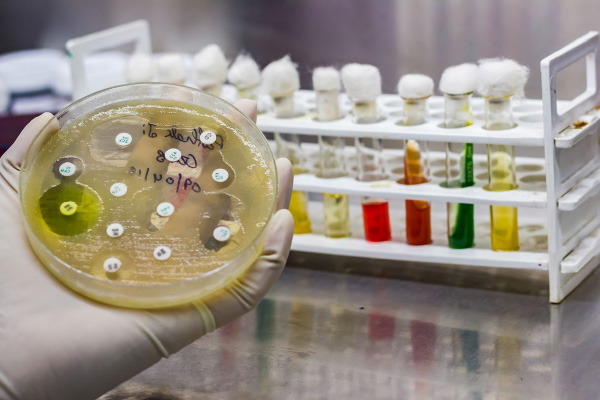
Antimicrobial Resistance (AMR) is a growing concern across the globe with the World Health Organization (WHO) also working with countries to tackle it effectively. 148 countries have action plans on AMR in place. To deliberate on this growing concern, a panel discussion on ‘Antimicrobial Resistance (AMR) – Use of novel technologies’ was organised during the recent 3rd Elets Diagnostics Leadership Summit. Edited excerpts from the discussion:
Expressing deep concerns over the global rise of AMR, especially in light of the global pandemic, a slew of thought leaders shared their insights in a discussion on ‘Antimicrobial Resistance (AMR) – Use of novel technologies’. Present during the deliberations were Dr Yatin Mehta, Chairman Institute of Critical Care and Anesthesiology, Medanta -The Medicity Hospital; Dr Sonal Saxena, Director Professor & Head, Microbiology Department, Maulana Azad Medical College; Dr Manisha Khandait, Professor and head Department of Microbiology, Shree Guru Govind Singh Tricentary Medical College, Hospital and Research Institute (SGT University); Prof (Dr) Chand Wattal, Chairman Institute of Clinical Microbiology & Immunology, Sir Ganga Ram Hospital and Dr Shahzad Mirza, Associate Professor, Microbiology, Hospital Infection Control Officer, DYPMCH. The session was jointly moderated by Dr Debkishore Gupta, Director, Medical Affairs, Cepheid and Garima Pant, Assistant Editor, Elets Technomedia.

Prof (Dr) Chand Wattal, Chairman, Institute of Clinical Microbiology & Immunology, Sir Ganga Ram Hospital, stated that Antimicrobial Resistance (AMR) is akin to global warming, which is why it is a global problem. It’s a huge problem with nothing in the pipeline. He called for evolving the concept of one health. Increasing awareness and understanding of the aspects of antimicrobial use in the agriculture sector and their impact on the environment are necessary in order to address AMR from a One Health perspective. He called for following Infection control prevention practices in letter and spirit.
Dr Sonal Saxena, Director, Professor & Head, Microbiology Department, Maulana Azad Medical College averred that steps need to be taken to ensure quality in results and also the rapidity in results. She stated that Microbiologists have to step up and take up the role of epidemiologists in the current scenario. She also stressed on the improved & enhanced coordination between various agencies to prevent infections in the animal, environment & agriculture sector.
Dr Yatin Mehta, Chairman, Institute of critical care and Anesthesiology, Medanta – The Medicity Hospital shared that one of the pertinent gaps today is the delay in diagnosis. He stated that we waste time, money & face increasing morbidity because of inappropriate antibiotic therapy as the diagnosis takes time. He added that if inappropriate antibiotics are used, the burden will increase. He advised that all microbiologists should be clinicians first and should come out of their laboratories and interact with clinicians.

Dr Manisha Khandait, Professor and Head, Department of Microbiology, Shree Guru Govind Singh Tricentary Medical College, Hospital and Research Institute (SGT University) shared that we are lacking at the diagnostic level and at the antimicrobial susceptibility testing. She called for wide availability of technology to further address the issue of AMR.
Dr Shahzad Mirza, Associate Professor, Microbiology, Hospital Infection Control Officer, DYPMCH stated that while the lab has to be equipped with hi-tech things for rapid results, the process starts with a basic thing like sample collection that has to be accurate. Further, correct diagnosis has to be made for the clinician to treat it correctly. He averred that being a microbiologist it’s important to understand that while we can follow guidelines but we need to understand our own flora to ensure that treatment is done in time. He shared that if for a report even a minute can be saved, it can bring in a huge change for the hospital and the patient.
Be a part of Elets Collaborative Initiatives. Join Us for Upcoming Events and explore business opportunities. Like us on Facebook , connect with us on LinkedIn and follow us on Twitter , Instagram.












